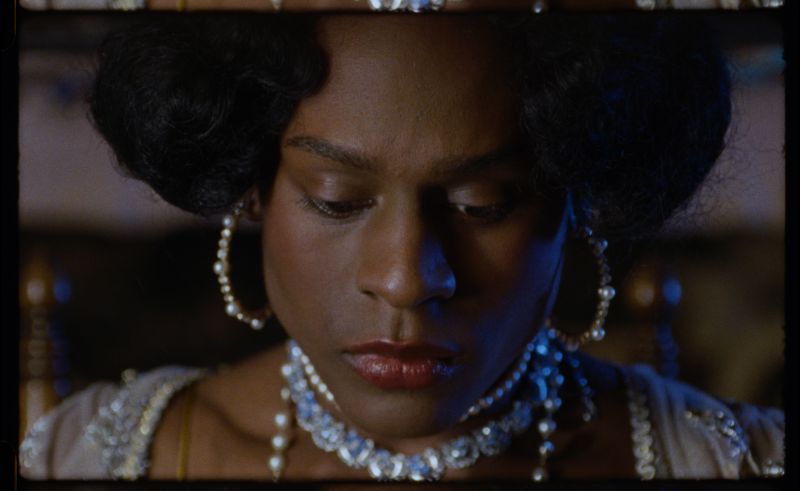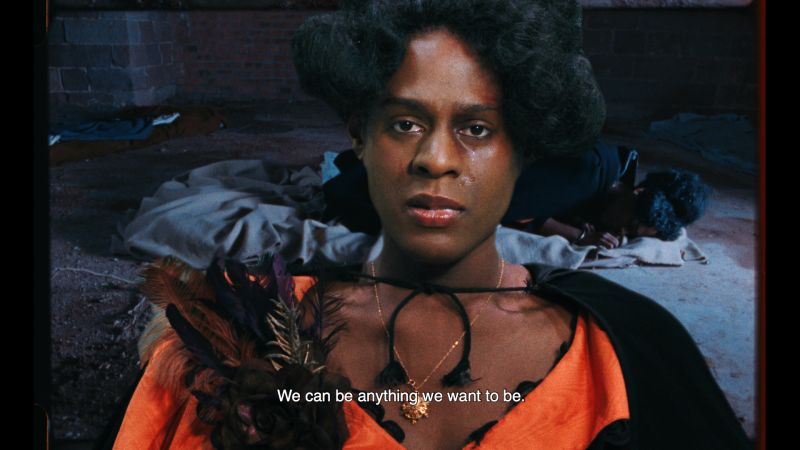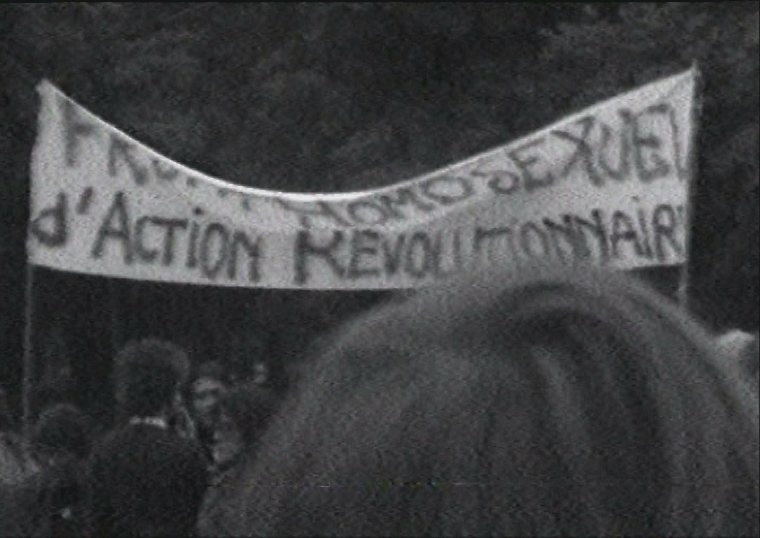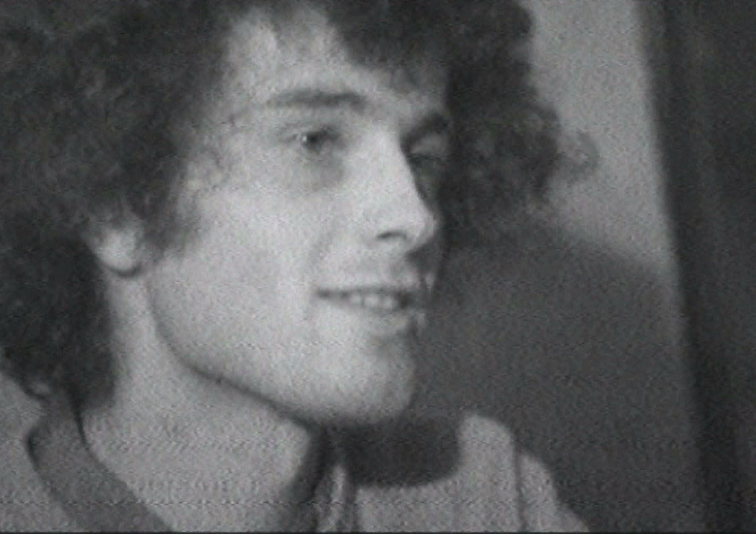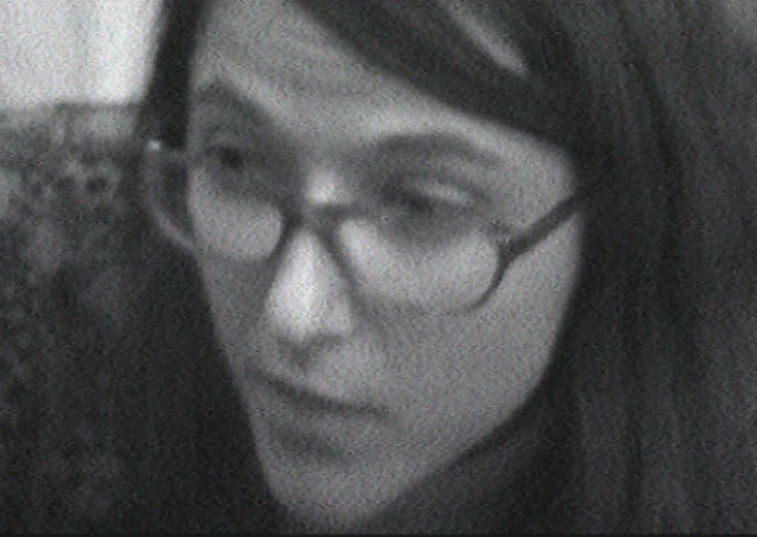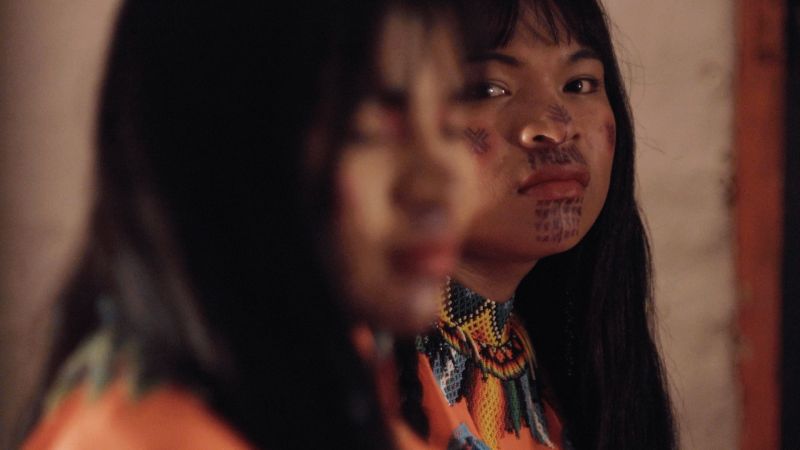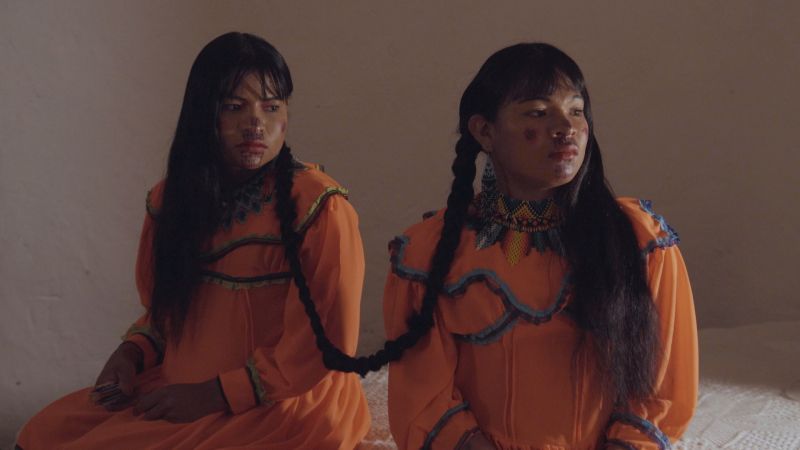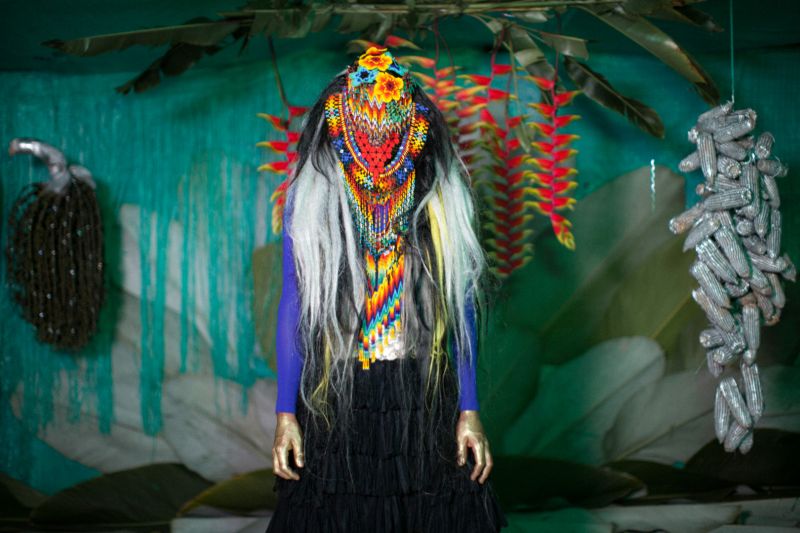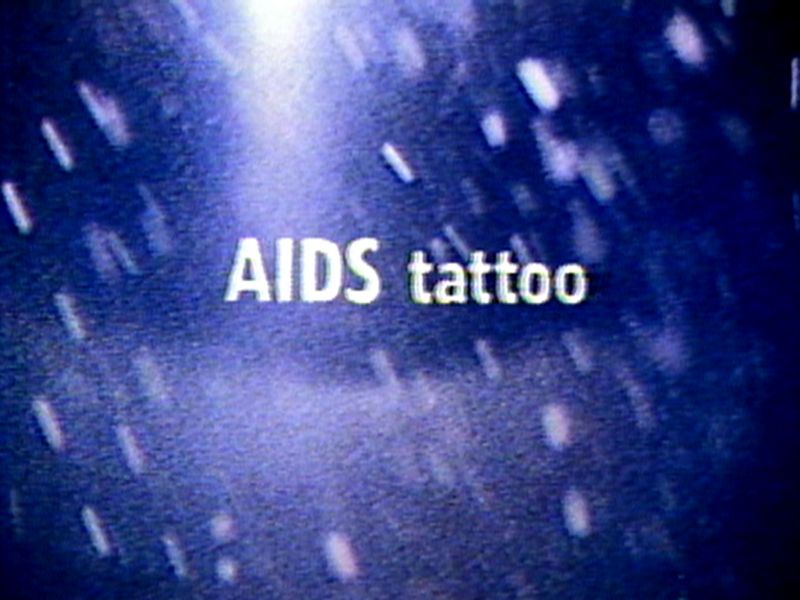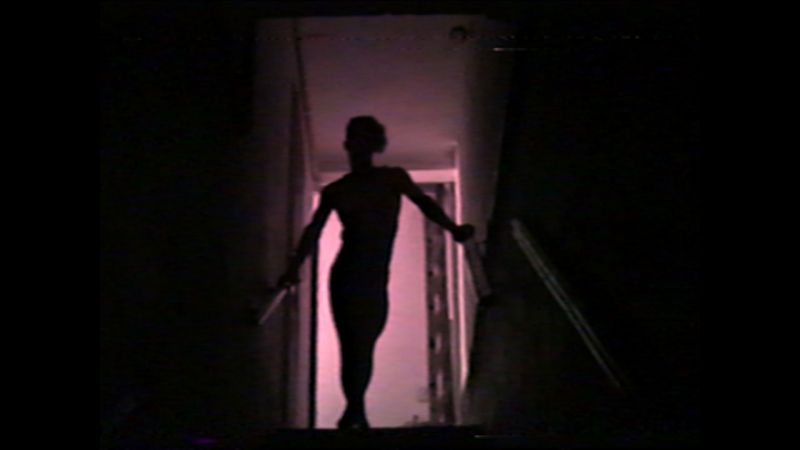LAB 1: Freedom Dreaming
LAB 1: Freedom Dreaming
»Imagining what's possible, even in conditions that tell us otherwise.« Tourmaline
Für die argentinische Filmemacherin und Drehbuchautorin Agustina Comedi spiegeln die frühen Werke von Nan Goldin eine Welt wider, die sie sich einst als junge Frau in der konservativen Stadt Córdoba nur vorstellen konnte. Goldins intime Fotografien erlangten über Grenzen hinweg eine politische Dimension, die das Selbstbewusstsein der LGBTQIA*-Gemeinschaft prägt. Aber auch der schmerzhafte Zusammenstoß zwischen der hart erkämpften Entkriminalisierung von sexueller Orientierung und der Ausbreitung der AIDS-Epidemie klingt bis heute nach. Die Bedeutung sowie der kreative Einsatz von Archivbildern werden umso relevanter, wenn der Großteil der Menschen einer Generation ausbleibt. Wie erinnern wir sie? Wie entstehen Vorbilder, mit den neue Generationen heranwachsen können? Ähnlich wie Goldin betonen die fünf ausgewählten Kurzfilme, wie subjektive Geschichtserzählungen die medial vorherrschende Rhetorik von Schmerz, Leid und Diskriminierung durch die Darstellung von Überlebensräumen entgegenwirken können.
Vor dem Hintergrund jahrzehntelanger rassistischer und queerfeindlicher Gewalt stehen hier die Bestrebungen der LGBTQIA*-Gemeinschaft im Mittelpunkt. Dabei ist diese nicht Gegenstand, sondern Subjekt der filmischen Erzählungen. Aus ihrem Inneren heraus entstehen die politischen Dokumentationen von Carole Roussopoulos und Barbara Hammer. Als Pionierinnen der Leinwand beleuchten sie das revolutionäre Selbstverständnis der schwul-lesbischen Protestbewegung im Paris der 1970er sowie die mediale Stigmatisierung der AIDS-Epidemie in den 1980er-Jahren. Dazu zeigen wir drei weitere Positionen des zeitgenössischen Films und der Videokunst. Während Tourmaline und Simon*e Jaikiriuma Paetau Raum für futuristische Perspektiven schwarzer und indigener trans Frauen schaffen, porträtiert Agustina Comedi die fürsorgliche Freundschaft einer Gruppe Transgenderfrauen und Dragqueens im Argentinien der frühen 1980er Jahre. Ein Kurzfilmprogramm mit Filmemacher:innen, die über die vermeintlichen Grenzen zwischen Aktivismus und künstlerischem Schaffen hinwegdenken.
Kuratorin: Cale Garrido
»Imagining what's possible, even in conditions that tell us otherwise.« Tourmaline
For Argentinian filmmaker and screenwriter Agustina Comedi, the early works of Nan Goldin mirror a world that she could once only imagine as a young woman in the conservative city of Córdoba. Goldin's intimate photographs took on a political dimension, transcending borders and shaping the self-awareness of the LGBTQIA* community. However, the painful collision between the hard-fought decriminalisation of sexual orientation and the spread of the AIDS epidemic also still echoes today. The significance and creative use of archival images become all the more relevant when the majority of people from a generation are absent. How do we remember them? How do role models emerge that might serve new generations as they come of age? In a manner akin to Goldin's work, the five selected short films emphasise how subjective historical narratives can counter the predominating medial rhetoric of pain, suffering and discrimination through the depiction of spaces of survival.
Against the backdrop of decades of racist and anti-queer violence, the works here focus on the efforts of the LGBTQIA* community. Instead of being treated as a mere object, the latter serves as the subject of the filmic narratives. The political documentaries of Carole Roussopoulos and Barbara Hammer arose from their inner lives. As pioneers of the screen, they shed light on the revolutionary self-conception of the gay and lesbian protest movement in 1970s Paris as well as on the media stigmatisation of the AIDS epidemic in the 1980s. In addition, we are showing three further positions drawn from contemporary film and video art. While Tourmaline and Simon*e Jaikiriuma Paetau create space for futuristic perspectives of Black and indigenous transwomen, Agustina Comedi offers a portrait of the nurturing friendship within a group of transgender women and drag queens in Argentina of the early 1980s. A short-film program featuring filmmakers who think beyond the supposed boundaries between activism and creative artistic practice.
Curator: Cale Garrido
 Salacia
Salacia
Vereinigte Staaten 2019 | Farbe |
06:08 | Englisch
 Salacia
Salacia
United States 2019 | Color |
06:08 | English
Der Film erzählt die fiktive Geschichte von Mary Jones, einer Schwarzen trans Frau, die in den 1830er-Jahren im Seneca Village in New York lebte – einem Dorf, das mehrheitlich von Afroamerikaner:innen bewohnt wurde und dem Central Park weichen musste. Mehr als ein Jahrhundert später zeigt das Found-Footage-Material der Aktivistin Sylvia Rivera die West Side Piers von Manhattan, einen ehemaligen Ort für vertriebene queere und trans Menschen. Zwei disparate Momente werden zu einem, um die miteinander verbundenen Erfahrungen von Jones und Rivera hervorzuheben.
In Salacia, Tourmaline builds a fictionalized story centered around Mary Jones, a black, trans, sex worker who lived in New York in the 1830s. Set within historical Seneca Village – a free Black land-owning community that was destroyed for the development of Central Park. The film’s non-linear narrative structure includes a brief interlude presenting found footage of activist Sylvia Rivera, more than a century later, on Manhattan’s west side piers, a former site for displaced queer and trans people. Tourmaline collapses two disparate moments into one to elevate Jones and Rivera’s tethered experiences.
share
Galerie:
Gallery:
Chapter NY
Regie, Script:
Director, Script:
Tourmaline
Kamera:
Camera:
Kjerstin Rossi
Music:
Music:
Geo Wyeth
 Le FHAR (Front homosexuel d'action révolutionnaire)
Le FHAR (Front homosexuel d'action révolutionnaire)
Frankreich 1971 | Schwarz-Weiss |
25:53 | Französisch
 Le FHAR (Front homosexuel d'action révolutionnaire)
Le FHAR (Front homosexuel d'action révolutionnaire)
France 1971 | Black & White |
25:53 | French
Ein Dokument über Frankreichs erste schwul-lesbische Straßendemonstration in Paris. Die FHAR-Demonstration (Front Homosexuel d'Action Révolutionnaire) fand im Rahmen der traditionellen Maikundgebung der Gewerkschaften statt und prangerte sexuellen Rassismus an. Zum ersten Mal nahmen Männer und Frauen an der Kundgebung teil. Sie marschierten fröhlich und stolz ohne Sicherheitsvorkehrungen und trugen ein einfaches weißes Transparent mit der Aufschrift FHAR. Stimmen riefen: »Les pédés dans la rue« (»Schwule auf der Straße«).
A document on France's first gay and lesbian street demonstration in Paris. The FHAR (Front Homosexuel d'Action Révolutionnaire) demonstration took place inside the traditional May Day union rally, denouncing sexual racism. For the first time, men and women took part in the demonstration, marching joyfully and proudly without security, carrying a simple white canvas banner emblazoned with the name FHAR. Voices cry out »Les pédés dans la rue« (»Queers in the street«)
share
Regie:
Director:
Carole Roussopoulos
Verleihfirma:
Distributor:
Centre audiovisuel Simone de Beauvoir
 Aribada
Aribada
Deutschland, Kolumbien 2022 | Farbe |
30:00 | Emberá-Chamí
 Aribada
Aribada
Germany, Colombia 2022 | Color |
30:00 | Emberá-Chamí
Mitten in der kolumbianischen Kaffeeregion trifft Aribada, das wiederauferstandene Monster, auf Las Traviesas, eine Gruppe indigener trans Frauen aus dem Volk der Embera. In ihrer einzigartigen Welt existieren das Magische, das Traumhafte und das Performative nebeneinander – ein ästhetisches und spirituelles Universum, in dem Dokumentarfilm und Fiktion zu einer transkulturellen Erzählung verschmelzen.
In the middle of the Colombian coffee region, Aribada, the resurrected monster, meets Las Traviesas, a group of indigenous trans women from the Embera people. The magical, the dreamlike and the performative coexist in their unique world – an aesthetic and spiritual universe in which documentary and fiction merge into a transcultural narrative.
share
Regie, Produzent:in, Editing:
Director, Producer, Editing:
Simon*e Jaikiriuma Paetau
Regie, Produzent:in:
Director, Producer:
Natalia Escobar
Regie:
Director:
in collaboration with Zamanta Enevia
Kamera:
Camera:
Luciana Riso
Script:
Script:
Friederike Hirz in collaboration with “Las Traviesas“
Ton:
Sound design:
Rubén Valdés
Verleihfirma:
Distributor:
Lucía González García
Darsteller:innen:
Cast:
Andrea Nembaregama
Darsteller:innen:
Cast:
Bella Wuasorna
Darsteller:innen:
Cast:
Beroniga Tascon
Darsteller:innen:
Cast:
Emilce Aizama
Darsteller:innen:
Cast:
Katy Tuave
Darsteller:innen:
Cast:
Zamanta Enevia
Simon(e) Jaikiriuma Paetau: Las Hermosas Invisibles (2024), Mourning Stage (2022), Mojana (2021), Trying to forget you (2019)
 Snow Job: The Media Hysteria of Aids
Snow Job: The Media Hysteria of Aids
Vereinigte Staaten 1986 | Farbe |
07:42 | Englisch
 Snow Job: The Media Hysteria of Aids
Snow Job: The Media Hysteria of Aids
United States 1986 | Color |
07:42 | English
»Ich hörte 1985 zum ersten Mal von AIDS, als ich am Columbia College in Chicago unterrichtete. Mir fielen die seltsamen und aufrührerischen Artikel in den Zeitungen auf, und ich bat meine Studierenden, für mich hysterische Schlagzeilen zu sammeln. Und so begann ich meine Arbeit an Snow Job: The Media Hysteria of AIDS. Ich untersuchte die öffentliche Ignoranz, die Stigmatisierung und die schlichtweg falsche Einstellung gegenüber dieser neuen Krankheit. Indem ich einen Schneesturm aus Zeitungsausschnitten erzeugte, konnte ich zeigen, was für ein »Schneegestöber« die Medien veranstalteten.« (Barbara Hammer)
»I first heard of AIDS in 1985 when I was teaching at Columbia College in Chicago. I noticed the strange and inflammatory articles in the newspapers and I asked my students to collect hysteric headlines for me. And so I began my work on Snow Job: The Media Hysteria of AIDS. I examined the public ignorance, stigmatization, and just plain wrong attitudes towards this new illness. By making a snow storm of newspaper clippings I could show what a »snow job« the media was making.« (Barbara Hammer)
share
Regie:
Director:
Barbara Hammer
Verleihfirma:
Distributor:
Electronic Arts Intermix (EAI)
(Selection) Evidentiary Bodies (2018), A Horse Is Not A Metaphor (2009), Sanctus (1990), Sync Touch (1981), Dyketactics (1974), Constribution to Light (1986)
 Playback. Ensayo de una despedida (Playback)
Playback. Ensayo de una despedida (Playback)
Argentinien 2019 | Farbe |
13:54 | Spanisch
 Playback. Ensayo de una despedida (Playback)
Playback. Ensayo de una despedida (Playback)
Argentina 2019 | Color |
13:54 | Spanish
Argentinien in den späten 1980ern: katholisch, konservativ und deutlich von den Auswirkungen der Militärdiktatur geprägt. In Córdoba erzählt »La Delpi«, die einzige Überlebende einer Gruppe von trans Frauen und Dragqueens, davon, wie ihre Shows in Kellertheatern ihnen Halt im Kampf gegen AIDS und Polizeigewalt gaben und die Gemeinschaft stärkten. Wie sie mit Lippenstift, Playbackperformances und improvisierten Bühnenoutfits ihre Wunden heilten. Wie sie Happy Ends erfanden, für die, die sterben würden. Ein Manifest der Freundschaft. (Berlinale)
Argentina in the late 1980s: catholic, conservative and shaped by a military dictatorship. »La Delpi«, the sole survivor of a group of trans women and drag queens, talks about how their shows in basement theatres galvanised the community and helped them in their struggle against AIDS and police violence. How they healed their wounds with lipstick, playback performances and improvised stage outfits. And how they invented happy endings for those who were to die. A farewell letter compiled from VHS memories. (Berlinale)
share
Regie, Script:
Director, Script:
Agustina Comedi
Kamera, Produzent:in:
Camera, Producer:
Magalí Mérida
Editing:
Editing:
Valeria Racioppi
Ton:
Sound design:
Guido Deniro
Verleihfirma:
Distributor:
Kino Rebelde
(Selection) Archivo de la Memoria Trans (2022), El silencio es un Cuerpo que Cae (2017)

